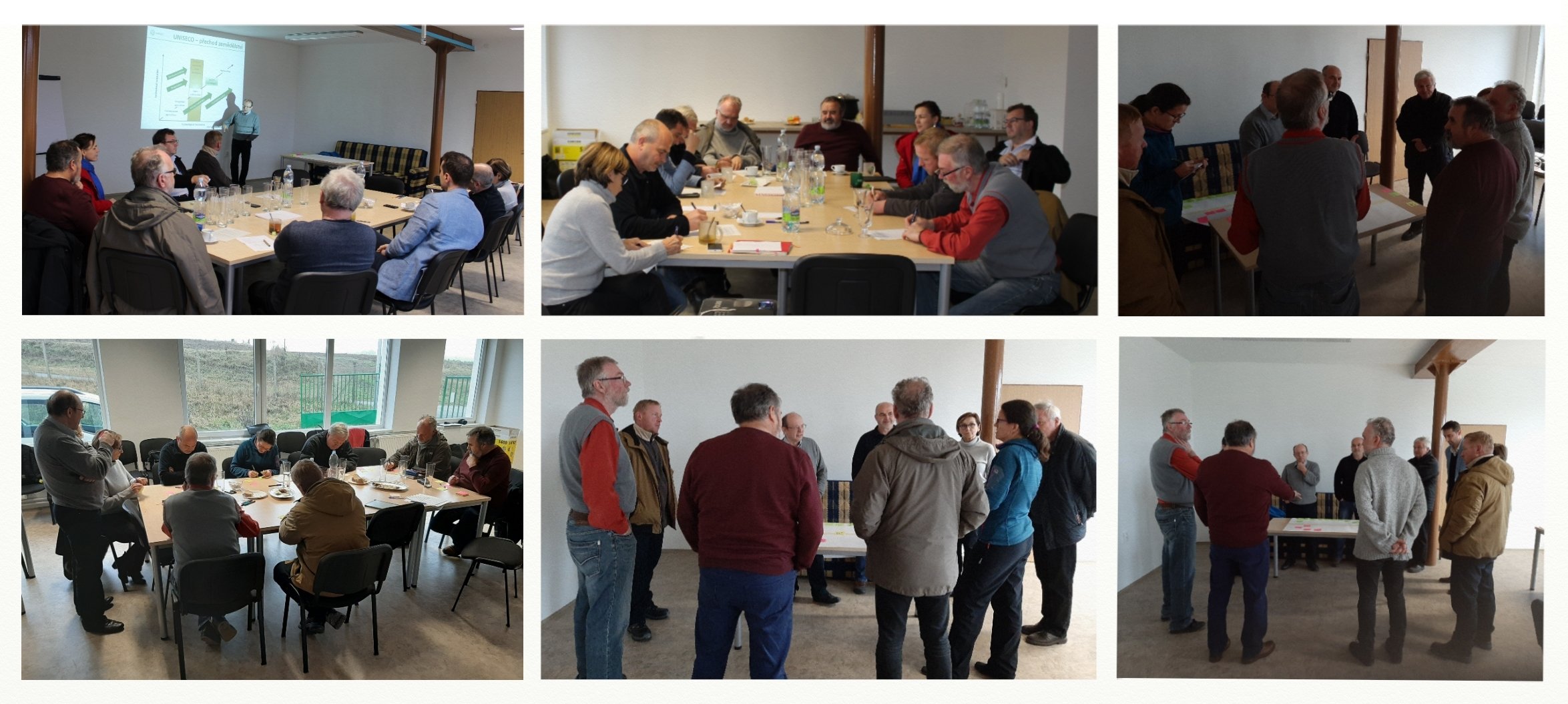We met at the Rubelit farm in Rožná, one of the farms involved in the project through data collection for SMART, COMPAS and CFT decision support tools.
The nine representatives of farmers, agricultural association, sales, local government, control body for organic farming, consulting and science participated in the workshop to evaluate and discuss barriers and motives for the transition of farms to more ecological farming methods, and to assess current policy measures and market incentives promoting the maintenance and extension of environmentally friendly farming practices in the Czech Republic.
The main focus was on the selected case study topic in the Czech Republic - to maintain good practices on arable land of dairy farms applying organic farming in the Vysočina region to reduce arable soil degradation and water pollution by pesticides.
The workshop outcomes include a list of the main drivers and barriers for the transition to organic farming and an evaluation of existing policy and market incentives motivating farmers to convert to organic farming, but also to remain in the organic farming regime, especially in the case of dairy farms.
The workshop results will be used as input for the next workshop held in spring of 2020 that aims to find possible adjustments of policy and market measures to better encourage farms to move towards more environmentally friendly farming systems.
Photos/text: Bioinstitut and ÚZEI
CZ case study: MAP workshop on assessing policy factors and evaluating transition drivers and barriers of more ecological farming
Workshop with participants from the Czech Multi-actor Platform and local stakeholders took place on 9 December 2019 in Vysočina region, the Czech Republic.
